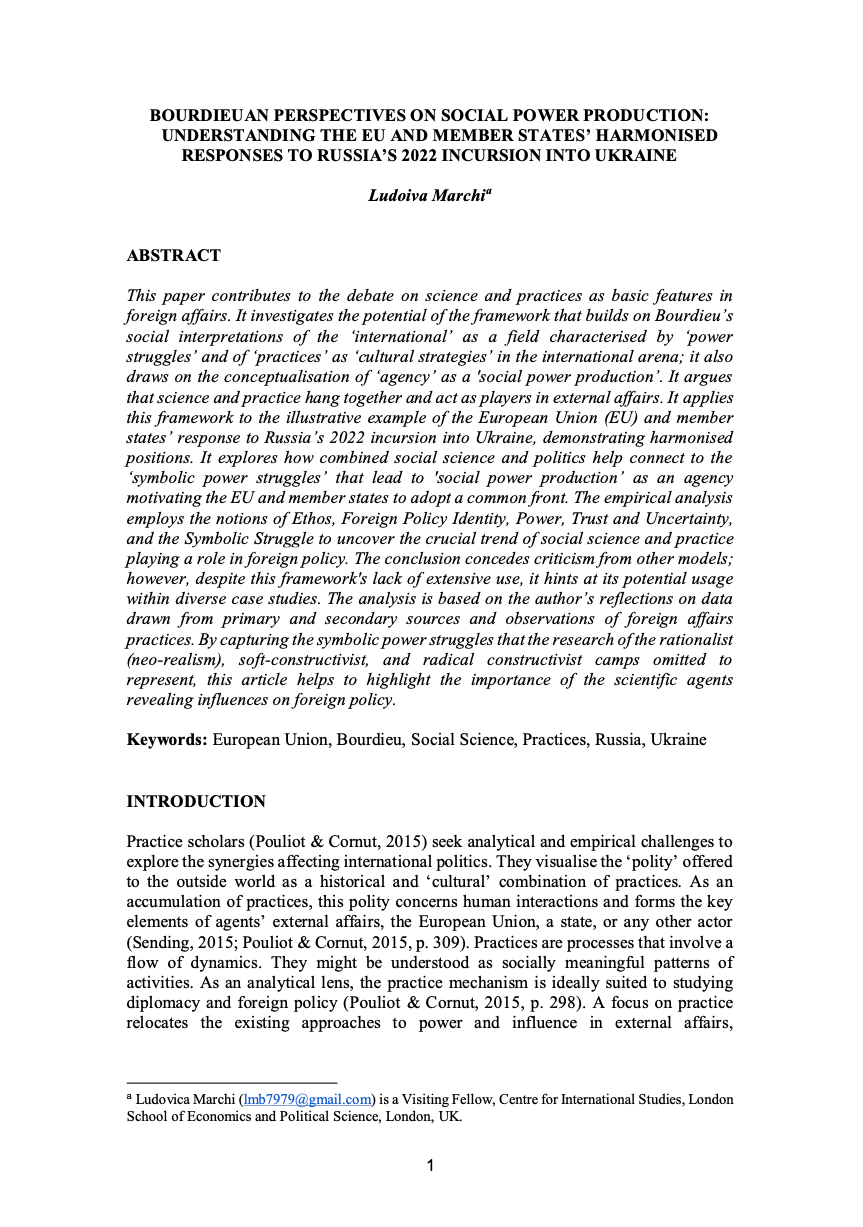BOURDIEUAN PERSPECTIVES ON SOCIAL POWER PRODUCTION: UNDERSTANDING THE EU AND MEMBER STATES’ HARMONISED RESPONSES TO RUSSIA’S 2022 INCURSION INTO UKRAINE
Main Article Content
Abstract
This paper contributes to the debate on science and practices as basic features in foreign affairs. It investigates the potential of the framework that builds on Bourdieu’s social interpretations of the ‘international’ as a field characterised by ‘power struggles’ and of ‘practices’ as ‘cultural strategies’ in the international arena; it also draws on the conceptualisation of ‘agency’ as a 'social power production’. It argues that science and practice hang together and act as players in external affairs. It applies this framework to the illustrative example of the European Union (EU) and member states’ response to Russia’s 2022 incursion into Ukraine, demonstrating harmonised positions. It explores how combined social science and politics help connect to the ‘symbolic power struggles’ that lead to 'social power production’ as an agency motivating the EU and member states to adopt a common front. The empirical analysis employs the notions of Ethos, Foreign Policy Identity, Power, Trust and Uncertainty, and the Symbolic Struggle to uncover the crucial trend of social science and practice playing a role in foreign policy. The conclusion concedes criticism from other models; however, despite this framework's lack of extensive use, it hints at its potential usage within diverse case studies. The analysis is based on the author’s reflections on data drawn from primary and secondary sources and observations of foreign affairs practices. By capturing the symbolic power struggles that the research of the rationalist (neo-realism), soft-constructivist, and radical constructivist camps omitted to represent, this article helps to highlight the importance of the scientific agents revealing influences on foreign policy.
